When to plant gladioli – for magnificent, showy blooms
Enjoy a yard full of color and drama with our guide on when to plant gladioli
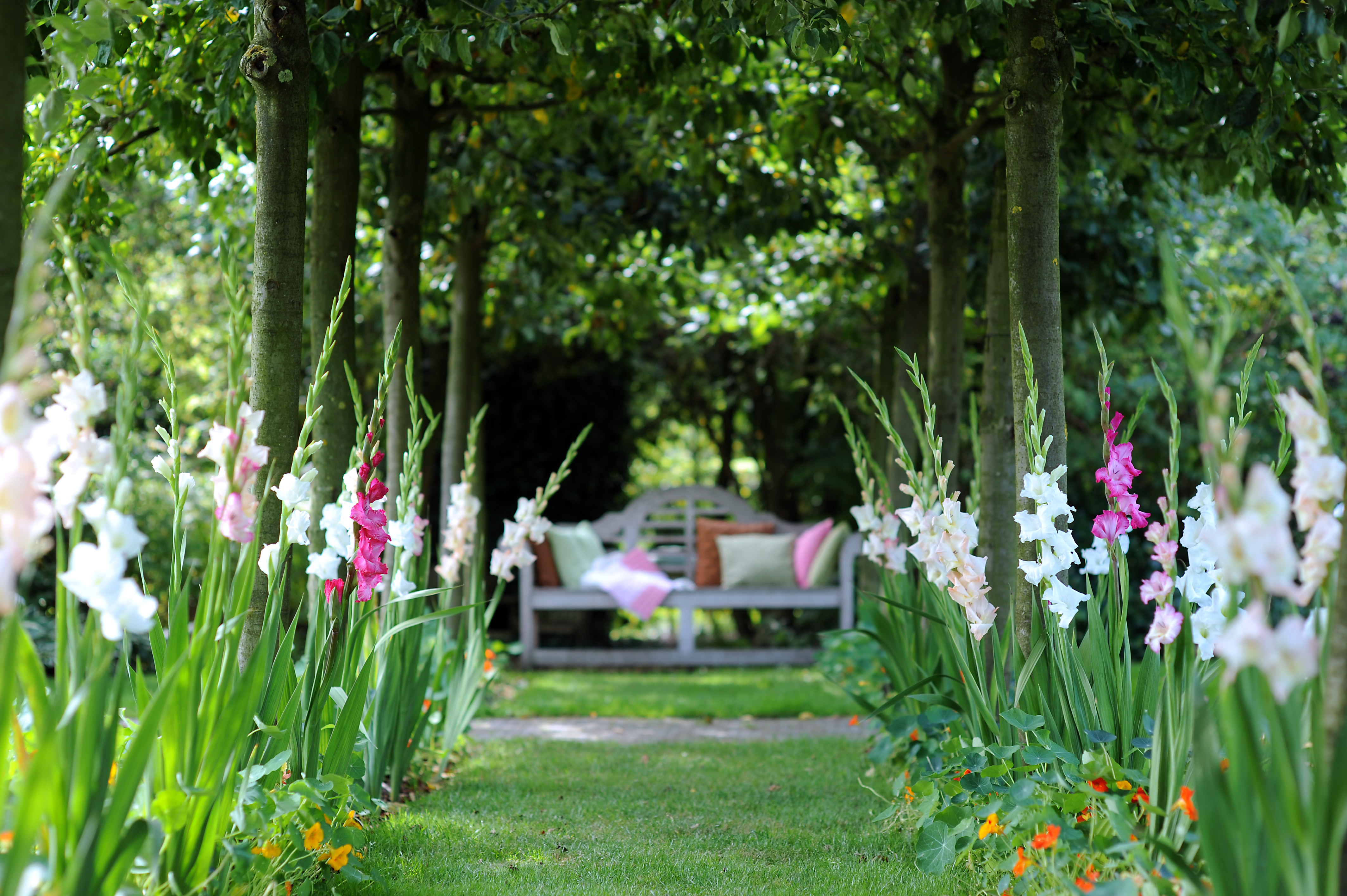

Get ready to bring some structure and personality to your backyard this summer by discovering when to plant gladioli.
These tall, stately blooms come in a myriad of shades – from subtle, smoky hues to vibrant breezy colors – and won’t fail to capture everyone’s attention as part of an array of the best spring bulbs.
What’s more, they are perfect for introducing height into pots and borders with varieties ranging from delicate 2ft high (60cm) beauties to more statuesque plants reaching up to 4ft (1.2m). Soaring skywards, they dazzle with their different flower shapes and textures and have a surprisingly long flowering period, too.
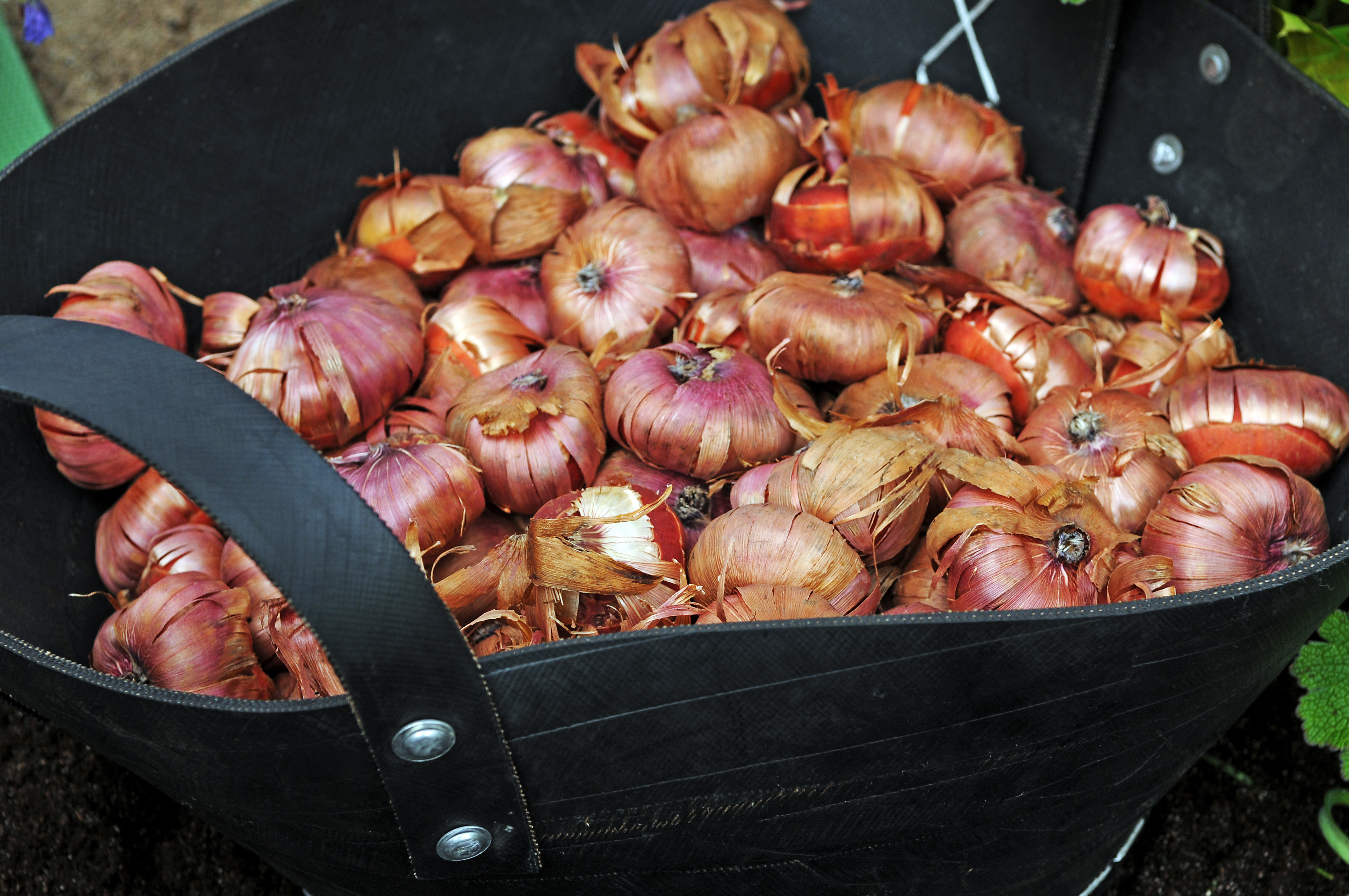
When to plant gladioli
You can plant gladioli straight into borders as part of your flower bed ideas. ‘Gladioli corms can be planted directly outdoors, as long as it’s in an area that gets plenty of sunshine and is in well-drained soil,’ says the team at J Parkers, leading UK bulb sellers established in 1933. ‘If your soil tends to be heavy and clay based be sure to place a handful of grit or sand in the hole before planting.’
Gladioli originate from the warm climes of South Africa, so it should be no surprise that the answer to when to plant gladioli is that it is best to wait until the frosts have passed. In most places this is usually around April or early June, but it does depend on your climate zone.
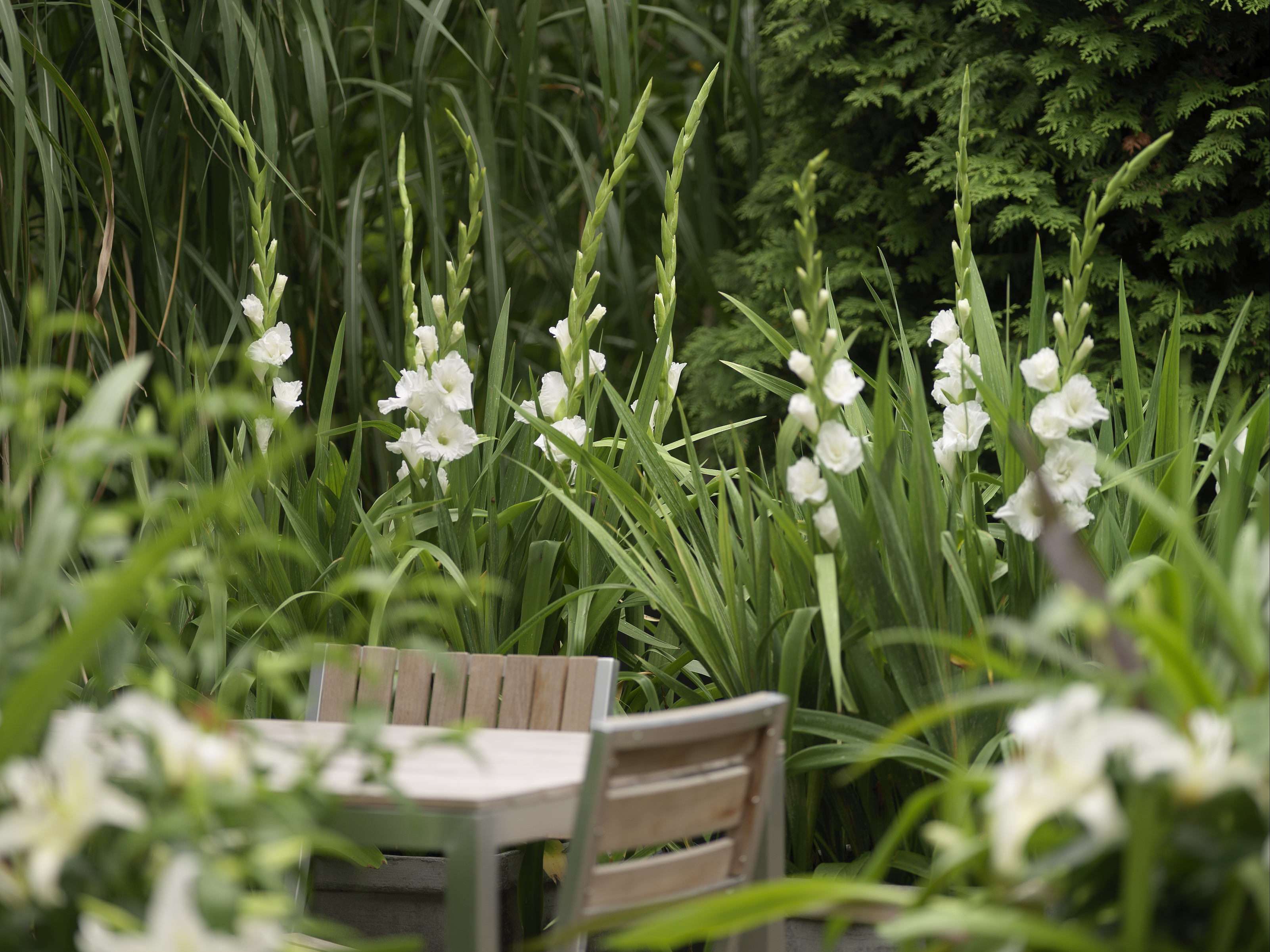
When to plant gladioli for a successive display
Grow a summer garden that’s full of color by planting a batch of gladioli every two weeks over the spring up until the early summer. This will guarantee a long, sustained flowering period plus a plentiful nectar source for pollinators.
Cut flower grower and florist Milli Proust is based in Sussex, UK, and says, ‘My favorites to grow are the species Gladiolus byzantius that arrive in hot pink drifts far earlier than any other Gladiolus. Known locally as Whistling Jacks, through late May and early June they cause a riot of colour in the wild across the south west.’
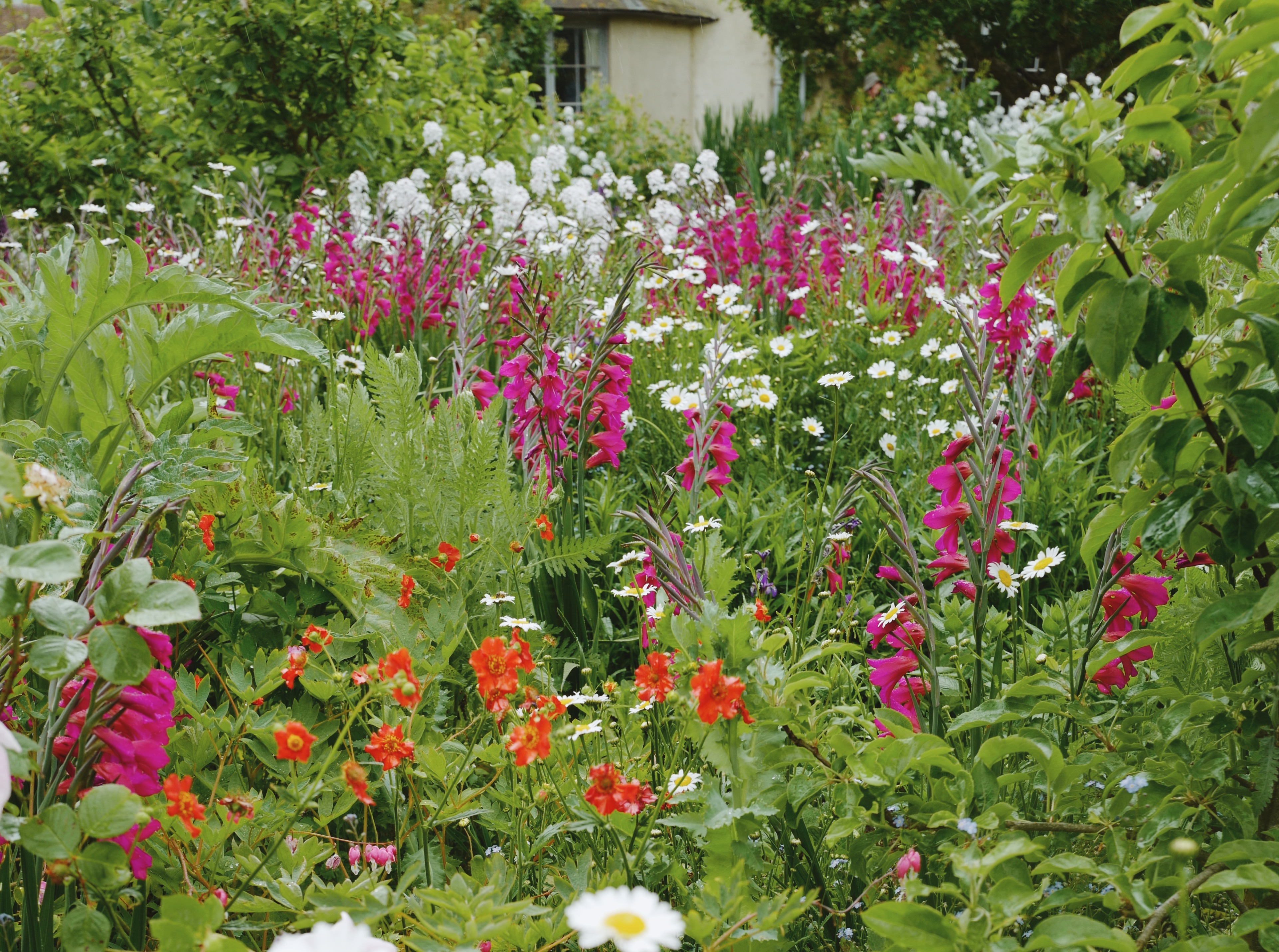
Can gladioli bulbs be left in the ground?
Gladioli bulbs may be able to be left in the ground, depending on where you live. Traditional advice is to lift and store them somewhere dry during the colder months, but there’s plenty of evidence to say that they can happily survive winters in zones 5a and 5b. Covering them with an insulating layer of compost – around 2.5 inches (6 to 7cm) thick – is a simple but effective way of protecting them from frost without going to the trouble of digging them up.
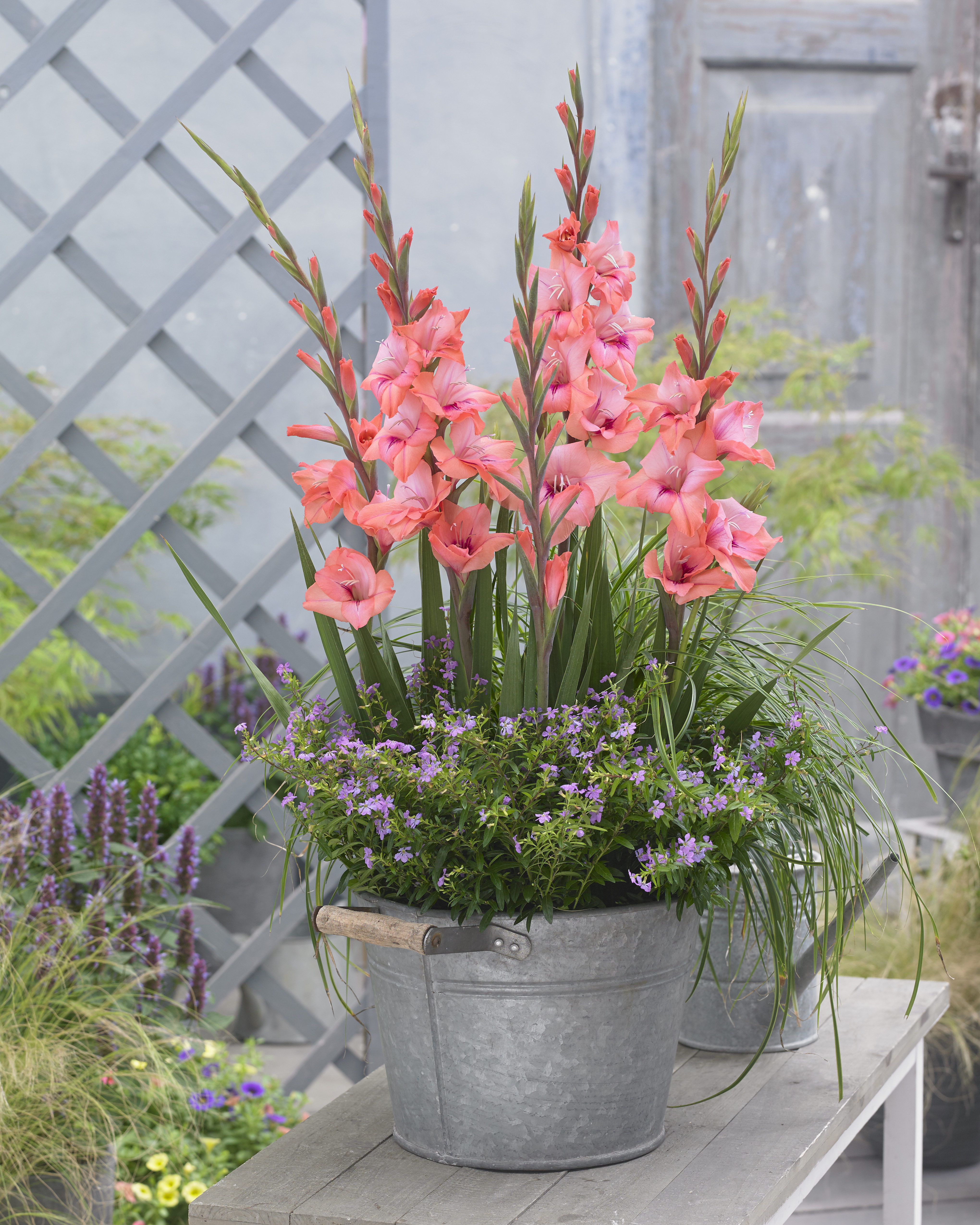
Do gladioli come back every year?
Gladioli can come back every year although they may need to be either lifted or protected in the cold season depending on your region. If they don’t flower, the problem might be waterlogged ground, or a shady site, while sometimes the corms are eaten by animals.
Sign up to the Homes & Gardens newsletter
Design expertise in your inbox – from inspiring decorating ideas and beautiful celebrity homes to practical gardening advice and shopping round-ups.

Journalist Jill Morgan has spent over 20 years writing and editing gardening, interior and property features. Titles she has worked on include The English Home, House Beautiful, Ideal Home, Houzz and Modern Gardens and she writes regularly for H&G as a Contributing Editor. Whilst she is a dab hand at renovation projects and DIY, she is happiest when out digging in the garden or planning a new border.
-
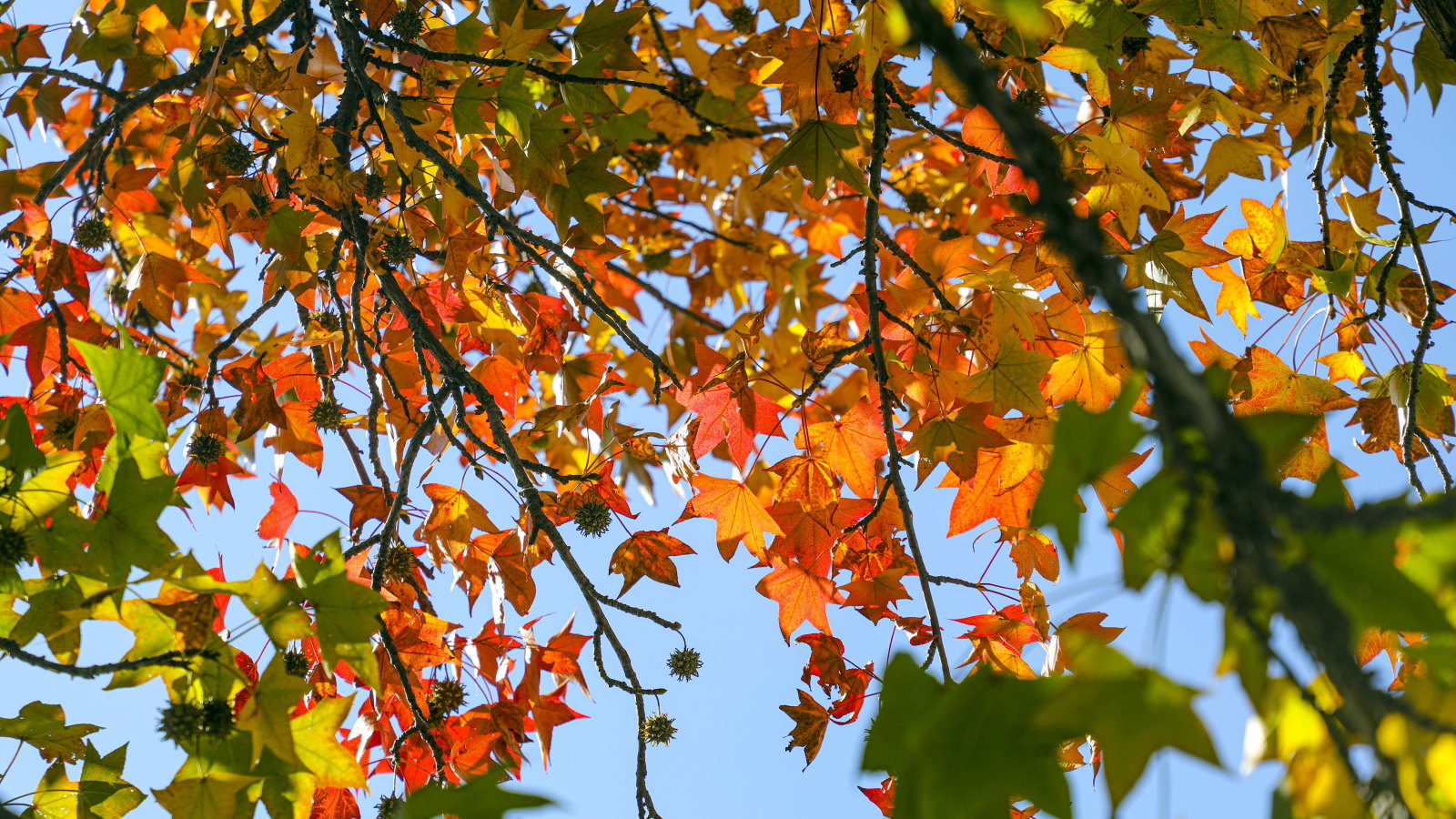 Early spring is the ideal time to prune sweetgums – arboriculture experts reveal pruning tips for safe and stunning trees
Early spring is the ideal time to prune sweetgums – arboriculture experts reveal pruning tips for safe and stunning treesStarting to prune early in a tree’s life is highly recommended
By Drew Swainston
-
 eufy vs. Ring – I was sick of monthly fees for my video doorbell, so I swapped to this superior subscription-free eufy one and have zero regrets
eufy vs. Ring – I was sick of monthly fees for my video doorbell, so I swapped to this superior subscription-free eufy one and have zero regretsVideo security is an essential, but paying to store the footage was a nuisance
By Punteha van Terheyden